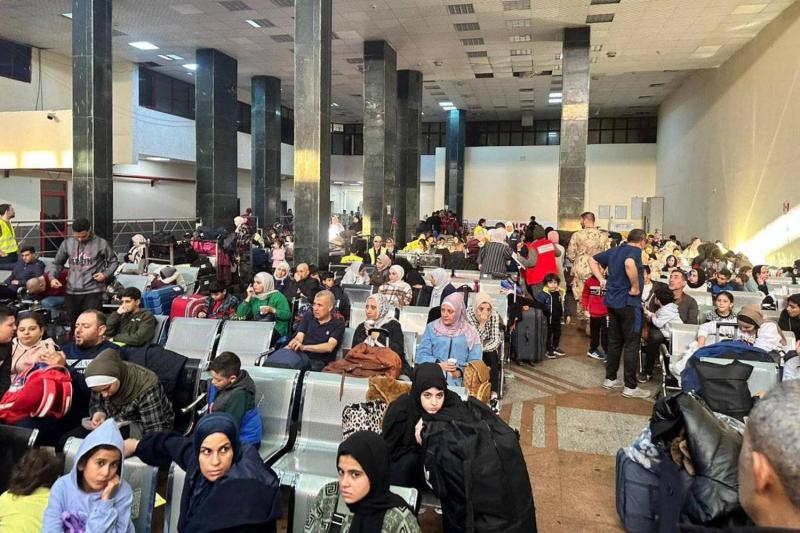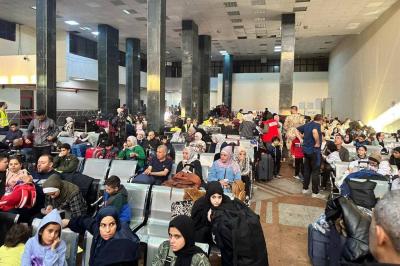It seems that no party involved in the ongoing conflict over the Gaza Strip—whether American, Israeli, Arab, European, or even Palestinian—has thought to consider the opinions of the people in Gaza about their future, despite the fact that they are the ones who have paid the highest price in the current war.
While Americans, Israelis, the Palestinian Authority, Hamas, and Arab countries are formulating potential plans for the "next day" after the war and deliberating about who will govern the strip, the people who have lost their loved ones, homes, dreams, and everything they own in the ongoing Israeli war on Gaza simply want the war to stop, and then they can talk about future matters. Ordinary Gazans do not have the luxury of considering whether they want Hamas to remain in power, or to see the return of the Palestinian Authority, or anything else. Sometimes they mock the idea, thinking that there is nothing left for anyone to govern.
Atef Hanoon, a 74-year-old resident of the Al-Yarmouk area in Gaza, told Al-Sharq Al-Awsat: "We are currently thinking about how to survive death. We are thinking about securing our daily bread, waiting to see if we will die, be injured, or be arrested. This is what we are thinking about, not who governs us." He added, "I no longer care who governs me, but I certainly refuse to accept the continuation of the occupation. If there is still something to govern, I believe it should be by anyone who is neither Israeli nor collaborating with them, providing us with our daily sustenance, restoring our life, hope, and security... even if it is an international entity."
The idea of having international bodies or forces is one among many proposals being discussed, including a qualified authority, a technocratic government, and local tribes. Israel is planning to divide the strip into governorates and hand over civil authority to local tribes, while security control remains with the Israeli army, which Palestinians have generally rejected.
The Palestinian Authority has rejected the Israeli proposal, as has Hamas, both stating that the matter is an internal Palestinian affair. However, neither the Authority nor Hamas has a shared vision for ruling the strip. On the other hand, Americans want, like the Israelis, to see Hamas excluded from the scene and are looking for a qualified Palestinian Authority to lead.
Gazans agree on one point: Israel should not govern the strip in the future, but they disagree on who should govern. Aysar Matar, a student at the Islamic University of Gaza's Faculty of Economics, stated that "the solution should be Palestinian. It is true that what we were rejecting before the war could now be accepted by many, but I believe that ultimately the solution must be Palestinian. I advocate for a comprehensive political solution and the formation of a technocratic government (not faction-based). We do not want more wars; we want to end the conflict."
Bisan Sharaf, a journalism and media graduate, said: "It is important that the ruling entity is not subject to Israeli and American interventions. There must be a body capable of ruling that meets the demands of Gaza's residents, which center on ensuring their security and lifting the siege."
Mohammad Al-Ghalban, a merchant and owner of a shop in Khan Younis in the southern part of the strip, remarked: "After the war, there will be other wars. There will be disasters, so we need a government capable of meeting the needs of the population. Hamas will not be able to do that. People still support the option of resistance despite all the destruction they have faced, but we must reorganize the political situation and the options for resistance in a way that aligns with improving the citizens' living conditions and avoids costly wars."
He added: "In reality, we no longer care who governs us right now... but the idea of tribes managed by Israel is a failed experiment elsewhere and will fail here before it even begins. It is a ridiculous suggestion."
Nermine Sharif, an accounting graduate and mother of four (a homemaker), believes that the Palestinian Authority should govern the strip, as it is "the entity capable of rebuilding it and improving the living conditions of the residents." She added: "Any other proposals are just illusions that cannot be implemented on the ground."
Activist and blogger Amal Al-Wadia from Gaza stated: "We do not care who will govern us after the war ends, but certainly not the occupation nor international forces; rather, we want a Palestinian governance that ensures a decent life for us and restores our future that was crushed by Israeli tanks."




